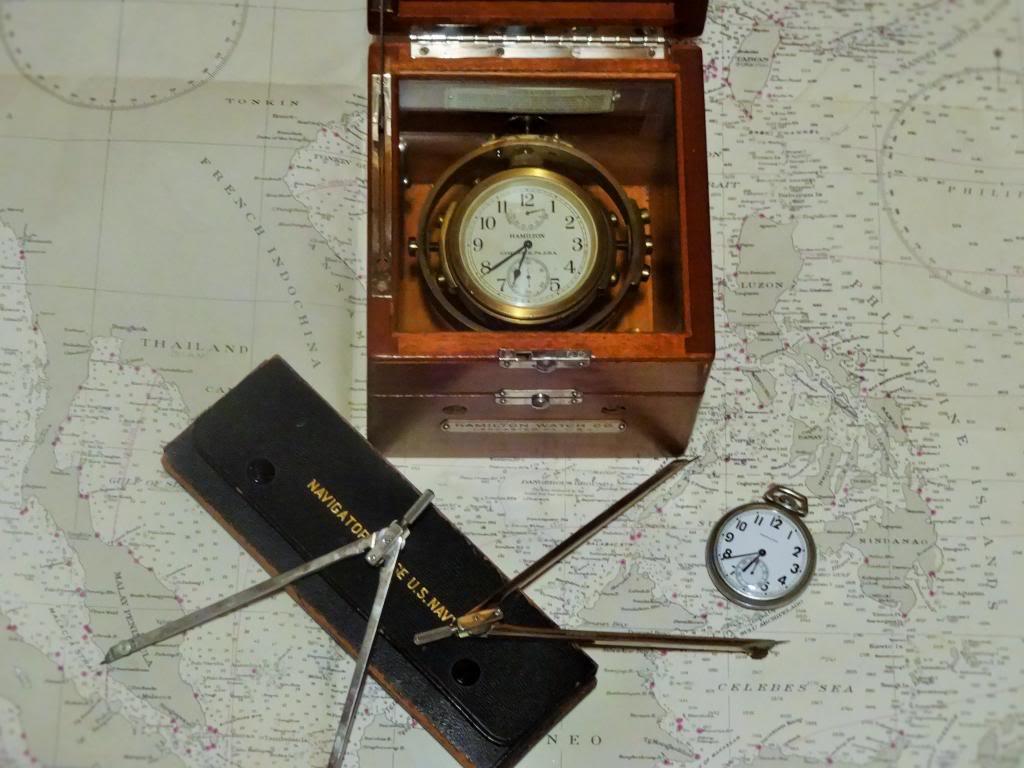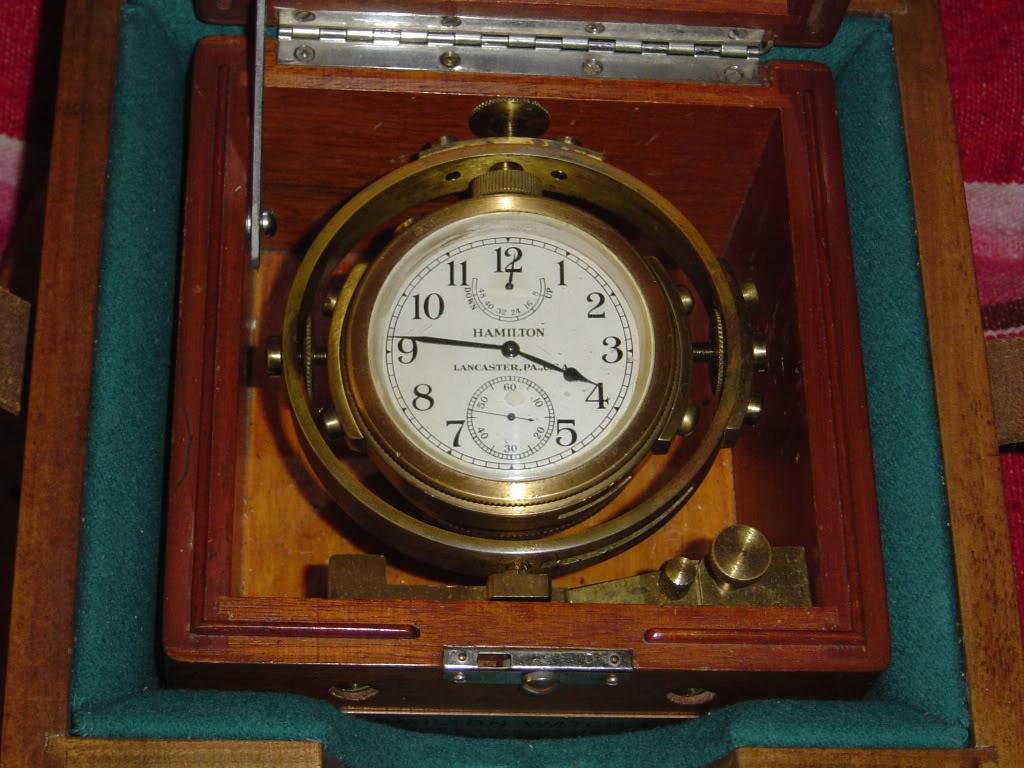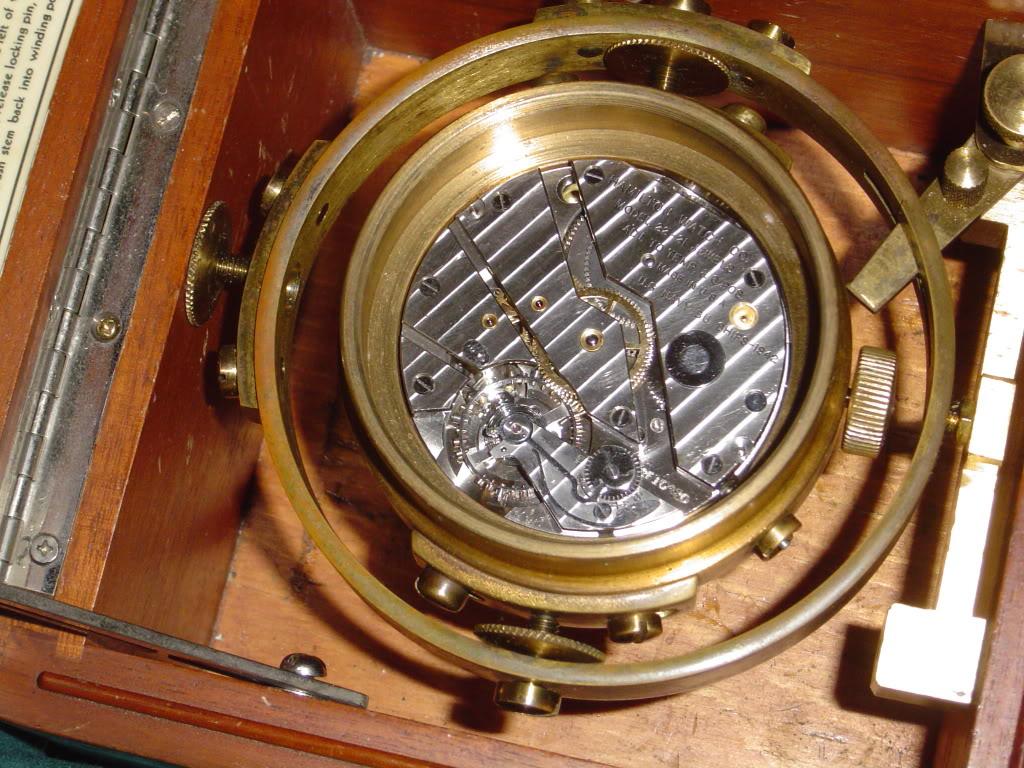Any one know what the US Navy used before GPS they did it the old fashion way
This is a Hamilton Model 22 chronometer in a gimbal box it keeps it level at sea there are holes in the outer box for bolting down the Pocket watch is a US Navy Comparing watch. One of these days would like to ad a Model 21 that has a fusee movement.
---------- Post added at 12:54 PM ---------- Previous post was at 12:47 PM ----------
A little history on the Marine chronometer
Latitude could be determined by measuring the altitude of the Sun at noon or the altitude of any tabulated star when it crossed the local meridian, but the determination of longitude at sea remained a serious problem. By the Middle Ages, astronomers knew that the local time of an eclipse depended on the longitude, and in the 16th century they pointed out the principle of determining longitude by comparing the local time with the reading of a clock that reliably kept the time of a known meridian; because the Earth revolves 360° in 24 hours, or 1/4° every minute, it was possible to ascertain how far east or west a ship had traveled by comparing a marine timekeeper set to keep time with the location of the ship’s point of departure and the ship’s local time as measured by the Sun and stars. But no accurate marine timekeeper was then available. Even on dry land, the best 17th-century clocks were capable of keeping time to an accuracy of only one or two seconds over an interval of several days. Placed on board a ship, clocks became even more unreliable. After being subjected to bouncing waves, corrosive salt sprays, and unpredictable variations in temperature, pressure, and humidity, most shipboard clocks either stopped running or became too unstable to permit accurate navigation. Finally, in 1714, the BritishBoard of Longitude offered a prize of £20,000 to anyone who could discover a method of finding the longitude within 30 miles during a sea voyage. After more than 40 years of disciplined labour, a barely educated British cabinetmaker named John Harrison won the prize by constructing the first practical marine chronometer, an oversized jeweled pocket watch that was nearly twice as accurate as the finest land-based clocks of his day. At last mariners had a way to determine both latitude and longitude. For decades thereafter the precise timing measurements obtained from marine chronometers, coupled with sextant sightings of the celestial bodies, allowed explorers to journey with dependable precision throughout the world.
Information

Warning: This is a relatively older thread
This discussion is older than 360 days. Some information contained in it may no longer be current.
- Knowledge Library

- MKL Entry of the Month
- Australia
- Austro-Hungarian Empire
- Canada
- Czechoslovakia
- Denmark
- Finland
- France/Belgium
- Germany
- Italy
- Japan
- Norway
- Russia
- South America
- Sweden
- Switzerland
- Turkey
- United Kingdom
- United States
- Yugoslavia
- Is my rifle authentic or a fake?
- Jay Currah's Lee Enfield Web Site
- On-line Service Records (Canada)
- Technical Articles/Research
- Forum
- Classifieds

- What's New?
-
Photo Gallery

- Photo Gallery Options
- Photo Gallery Home
- Search Photo Gallery List
-
Photo Gallery Search
- Video Club

- iTrader













 Register To Reply
Register To Reply
